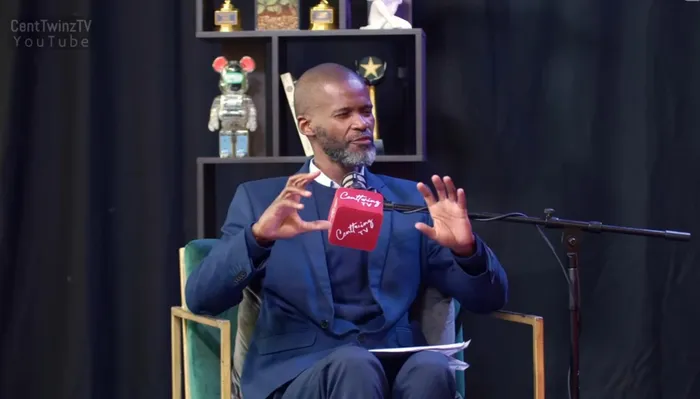Cloudy with a chance of ascension: Social media buzzes worldwide over rapture

Rapture prediction by Joshua Mhlakela ignites viral frenzy on social media.
Image: Screenshot/YouTube
A South African self-styled 'messenger', Joshua Mhlakela, has ignited worldwide debate after claiming that the biblical rapture will take place on Tuesday or Wednesday this week (September 23-24).
Mhlakela first made the prediction during an interview on the YouTube channel CettwinzTV, where he said he had received a divine vision.
According to Mhlakela, he saw Jesus sitting on His throne and heard the words: "I am coming soon. I will come back to the Earth."
He emphasised that the rapture (a Christian belief that, at a future moment known only to God, Jesus Christ will return to take believers, both living and dead, out of the world to meet him in the ether) is imminent.
"It is upon us. If you are not ready for it; it is ready for you. When the time comes, it's either you are prepared for it or not," said Mhlakela.
The dates coincide with Rosh Hashanah, the Jewish New Year, which some Christians link to end-times prophecies and the Feast of Trumpets. Supporters argue that the timing provides 'biblical confirmation' of Mhlakela's claim.
The prophecy has exploded across TikTok, YouTube and Facebook under hashtags such as #Rapture2025 and #RaptureTok, drawing millions of views.
Users have shared countdowns, livestream prayers and videos urging repentance. In a satirical post, South African musician, Alpha Royce, took to TikTok to claim that she had given away all her earthly possessions.
"To the heathens I know, you'll not be coming with us, the chosen ones. I have already transferred the deed to my house... I just need to give this car away. None of this material stuff is going to matter on Tuesday, when I get raptured" she said.
Repent as it is not too late, she went on to tell viewers, to be a part of the prophet.
However, to other netizens, the rapture is no joking matter. They shared clips selling their vehicles and other possessions. Some social media users have, albeit without credentials, diagnosed these individuals with religious psychosis.
Religious psychosis is not an official diagnostic term in psychiatry, but it is often used informally to describe a psychotic episode where the content of delusions or hallucinations is religious in nature.
"A concept that was built in the 1800s is causing people to sell their cars and prepare for this thing that is not going to happen," commented popular influencer, PeterisPeter. "And when it doesn't happen, the amount of people that are going to turn their words around."
The modern belief in a sudden rapture of Christians before a period of global tribulation can be traced to 19th-century Britain, where Anglo-Irish preacher John Nelson Darby developed the doctrine during the 1830s.
Darby, founder of the Plymouth Brethren movement, argued that history unfolds in distinct 'dispensations' and that believers would be 'caught up' to heaven before a final era of suffering described in the Book of Revelation.
Darby's ideas crossed the Atlantic and gained wide influence in the United States through prophecy conferences. He believed that 144,000 would be raptured.
"I believe that the 144,000 of Revelation 7 are the twelve tribes as a whole … although they will not be in heaven," he wrote in a letter dated to March 5, 1852.